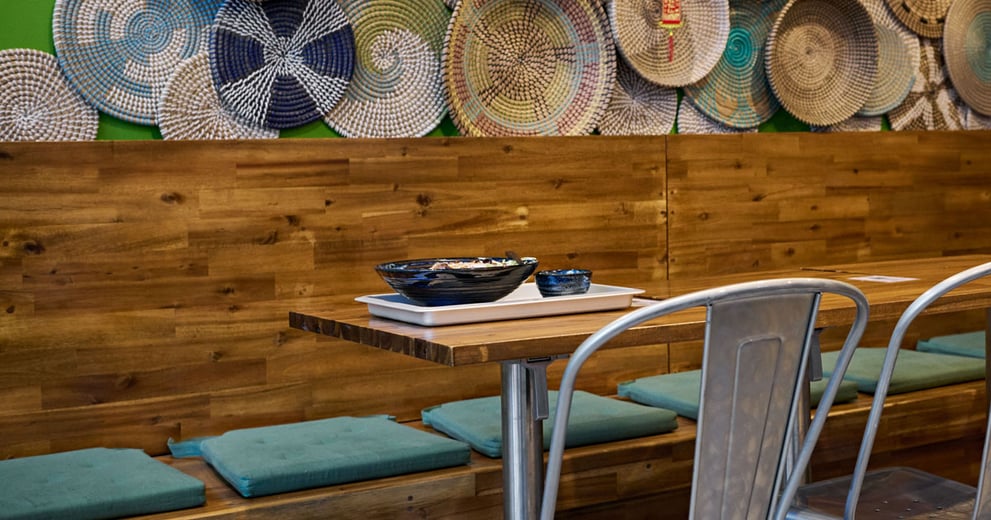Introducing Zeller for Startups.
Don’t waste time assembling disparate tools or waiting in line at a bank. Zeller for Startups is an all-in-one financial solution for founders, by founders.
30.09.2021

Not every type of restaurant is best suited to bookings. As a restaurateur, it’s important to consider whether it makes sense — both from an operational perspective and for your customers — to implement a reservation system.
When deciding whether to start accepting bookings at your restaurant, consider the following.
Are you offering a fine dining or casual experience? Fine dining restaurants usually have a reservation system, as patrons prefer not to wait in line at high-end restaurants. If your restaurant’s atmosphere is casual, then patrons may not be too bothered by a short wait.
If your restaurant is constantly attracting large crowds and regularly has a queue for a table, you may want to implement a reservations system to avoid having to turn patrons away. Any venue's reputation for being the "go-to" local place can quickly become unstuck if it's impossible for diners to get through the doors.
The floor capacity of your restaurant plays a major role in your table turnover. If you have limited capacity, a reservation system will assist you in ensuring that your floor is being used to its maximum potential and that you are serving as many patrons as possible.
Once you've determined whether you should accept bookings at your restaurant, the next step is to decide how to do it.
Finding the best way to manage reservations for your business can be a task on its own. Keep reading to discover three different ways to accept bookings.
Third-party reservation platforms make the booking process simple, and have the added advantage of helping you reach and attract new diners by boosting your business’s visibility and promoting your venue through their existing user networks. A predetermined per-person booking fee is usually also required to secure reservations, which reduces the likelihood of no-shows.
Other websites and apps such as Google, Facebook, and Instagram allow patrons to make a reservation directly from within their user interface by partnering with third-party reservation platforms, like Google. Leveraging these platforms can be beneficial for your business, especially if you have an established online presence.
Third-party reservation platforms will charge your business a commission for their service, but that's not the only drawback. The biggest disadvantage to using a third-party booking platform is that you don’t have control over your bookings and the guest information collected. This means that the information collected can be used to drive more engagement for their own business and marketing needs — rather than yours.
If you’re looking for a reservation system that you have full control over, perhaps a website booking form is the way to go. A simple booking form on your venue’s website is easy to implement, and you can drive traffic to the form via your social media pages.
The advantage of having a booking form in place is that, at little to no cost to your business, you can fill your run sheet and gather important customer details. By inviting diners to subscribe to marketing updates, you'll build up a list of local diners to whom you can market specials and the like. Unlike third-party reservations platforms, a booking form on your website puts you completely in control.
The downside to relying on a booking form is that it limits your restaurant’s discovery on popular platforms, so you'll need to find other ways to advertise your business.
Click-to-call technology is a convenient way for diners to make a reservation and receive immediate confirmation. By listing your venue's phone number on your website and Google My Business listing, diners can take action and call your restaurant directly to make a reservation.
Zeller research shows 30% of diners prefer to make a reservation on the day.
It's is the most straightforward, easy-to-implement way to accept bookings — and an opportunity to improve the diner experience.
When a diner calls your venue to make a booking, staff have the opportunity to advise them of any COVID-safe policies and procedures in place — such as the requirement for diners to wait outside until their time of booking, for example. Your staff can explain this over the phone, and answer any questions diners may have.
Whilst bookings may not be right for every venue, they do have their advantages. Bookings could help grow your business, as well as manage table turnover and streamline day-to-day operations. Depending on how much time and money you want to invest, careful consideration should be given when choosing the right platform for your business needs.
If you want to expand operations and reach more diners, third-party platforms will allow you to do that with their network and marketing tools. However, if you prefer to manage your reservations yourself, consider either a website booking form or encourage diners to call the venue directly.
For more business solutions and ideas, sign up to the Zeller Business Blog.